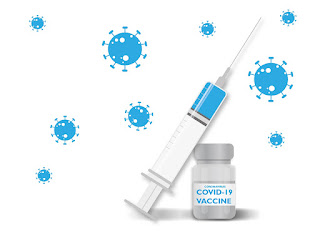Why Should Full Vaccine Approval Take Months?
About a month ago, Pfizer applied for full authorization from the FDA. Today, Moderna has done the same.
Now begins an apparently months-long wait for the FDA to make up its mind whether the vaccines are safe. These are the same vaccines that have been safely administered to Americans 294 million times (and counting) under an emergency use authorization (EUA).
Why months? Apparently the process involves pouring over clinical trial results to find any indication of untoward side-effects. Manufacturing processes need to be scrutinized. Lawyers must negotiate over what can go on the label (lawyers always gum up the works; that's how they make money).
The process is designed for a new vaccine that has only been tested in clinical trials. It makes sense that in that case you would need to scrutinize that trials data. You would need to check out the manufacturing details because it's a new process. and so on.
But in the present circumstances the process seems ridiculous. If there were any safety issues with the vaccines, they would have become obvious over the last five months and hundreds of millions of administrations. The same goes for safety problems in manufacturing.
A long delay before full approval is important because organizations like the military can't require their members to be vaccinated under an EUA. Some health care workers (and others) are refusing the vaccine because it is experimental.
I understand that the exiting process is probably fixed in law or at least in policy. But in that case why don't we do what the Trump administration did—the only good thing they did—and throw resources at the problem?
If it takes a month to review the clinical trial data, lets quadruple the number of reviewers and cut the wait to a week. Hire a phalanx of factory inspectors and get them to the plants immediately. Promise the lawyers a cash bonus in proportion to how much they cut the normal negotiation timeline.
Get 'er done!
Header image by Alexandra_Koch from Pixabay



